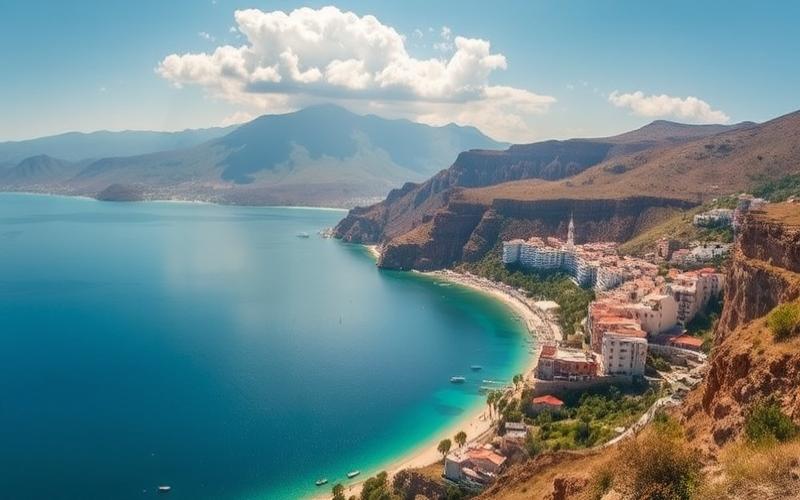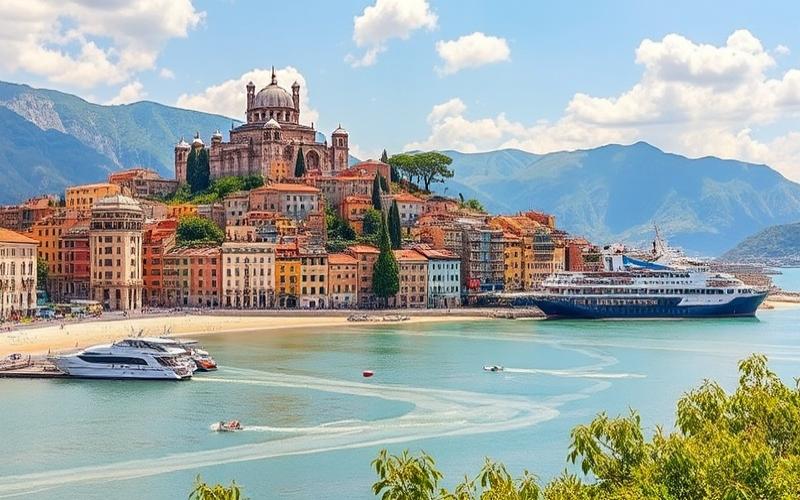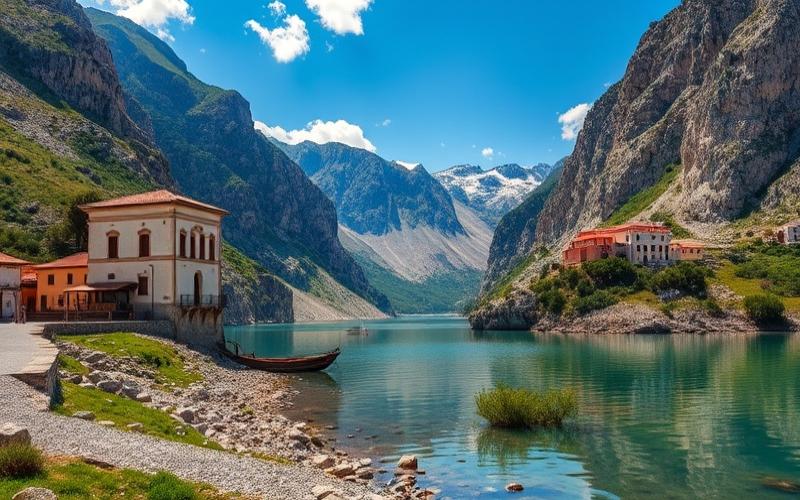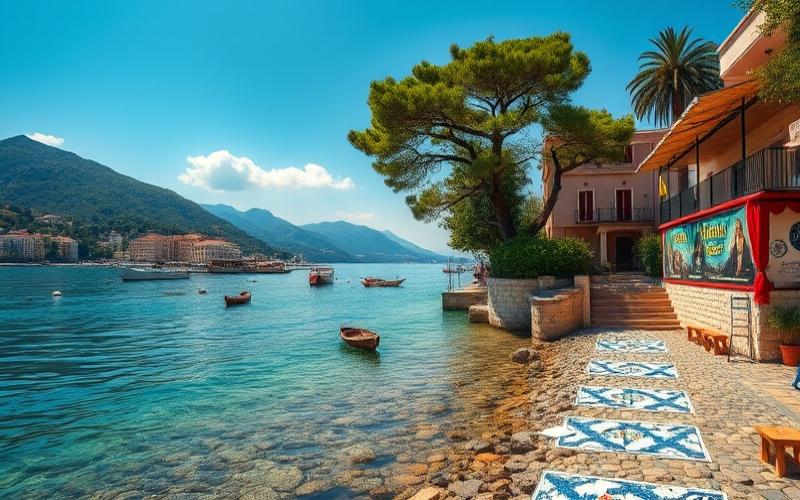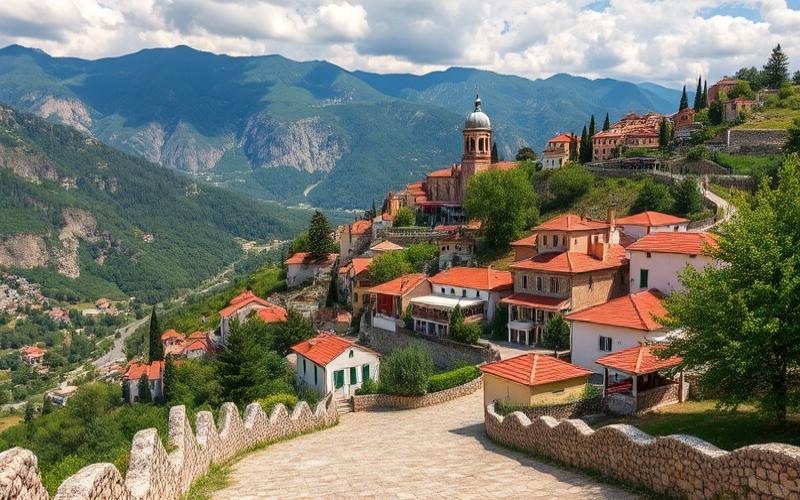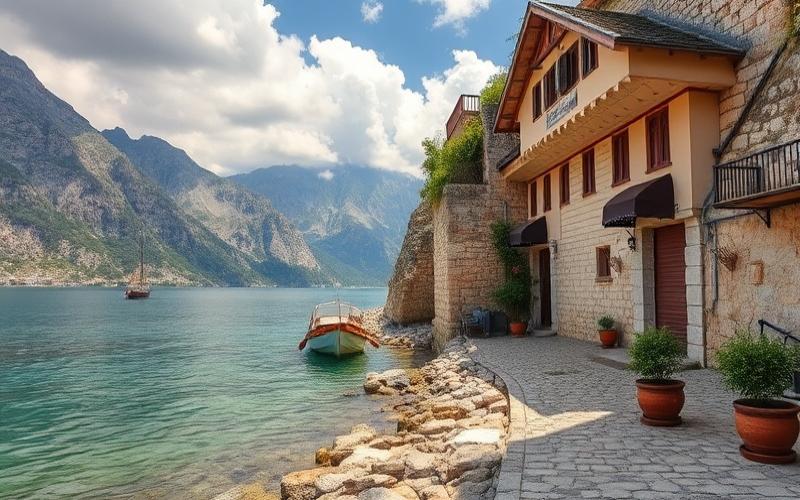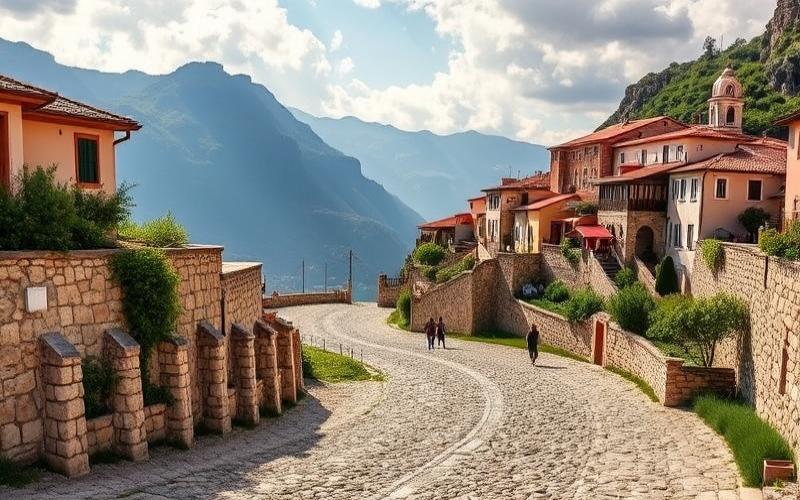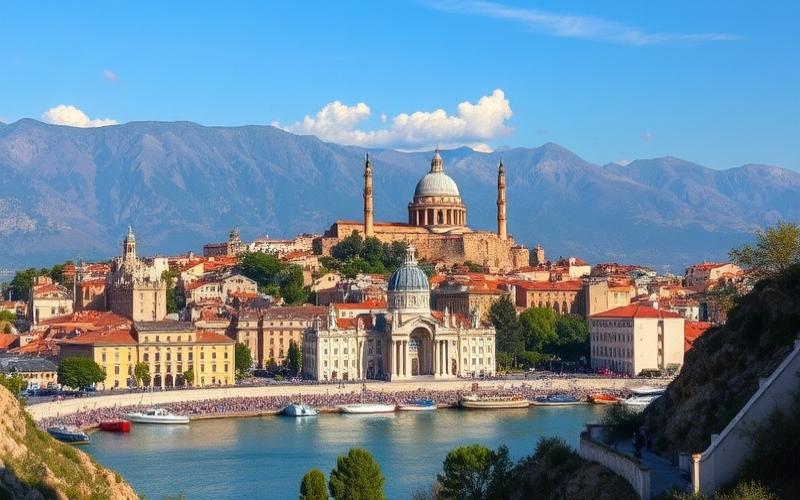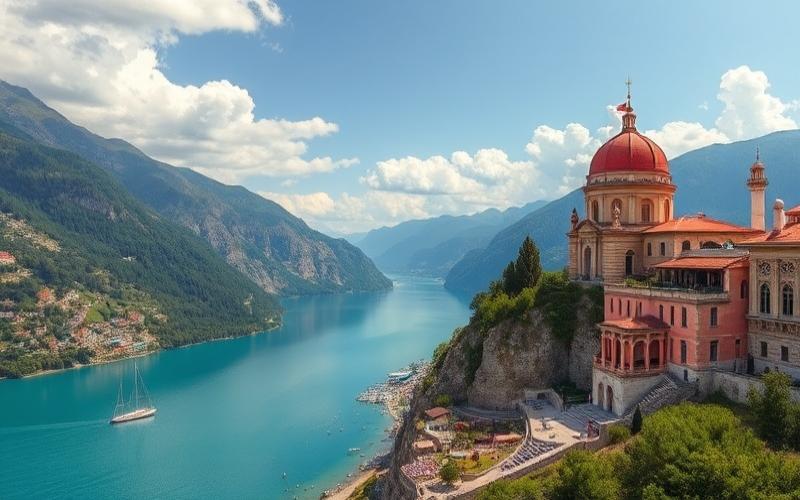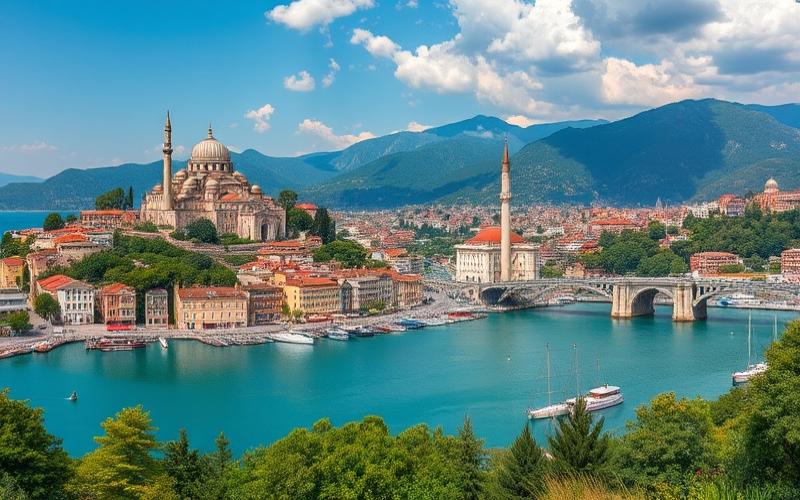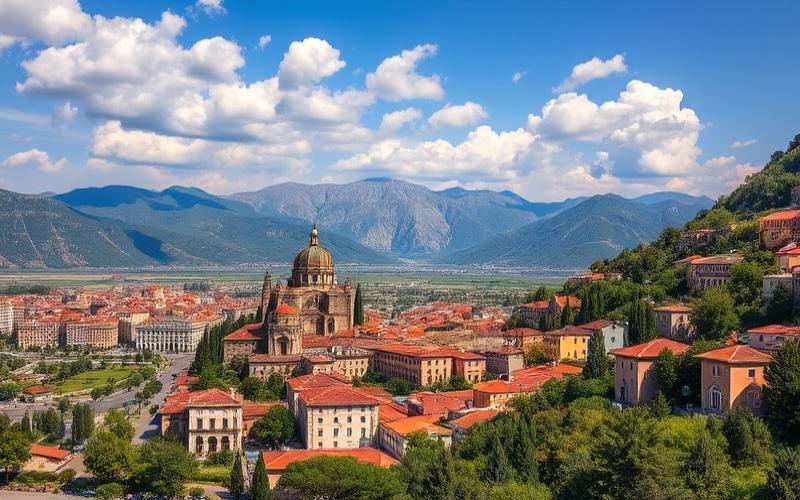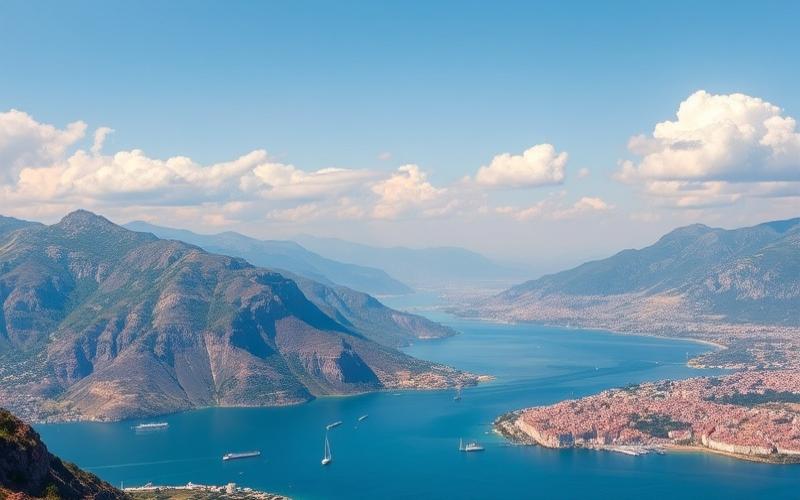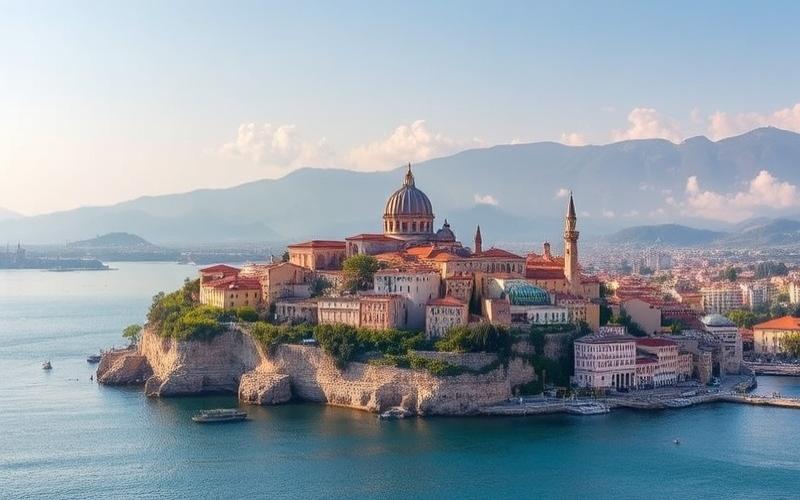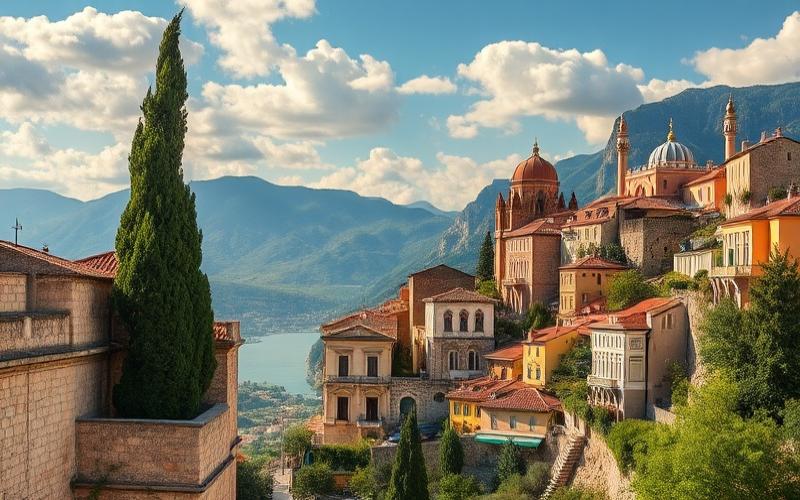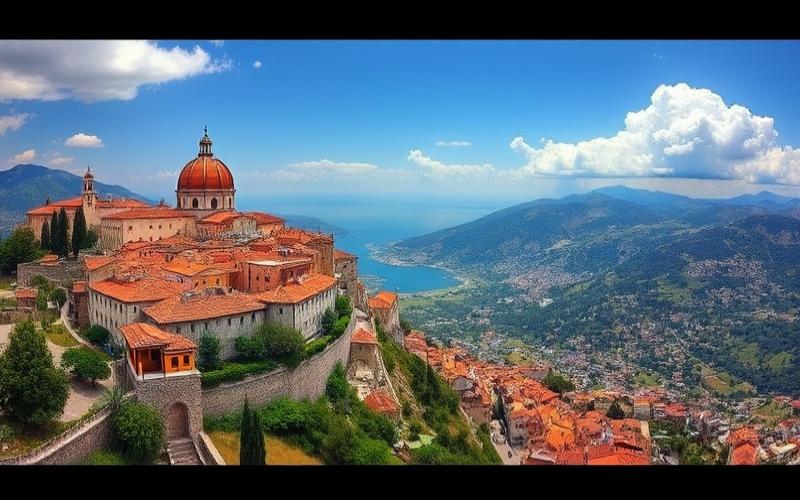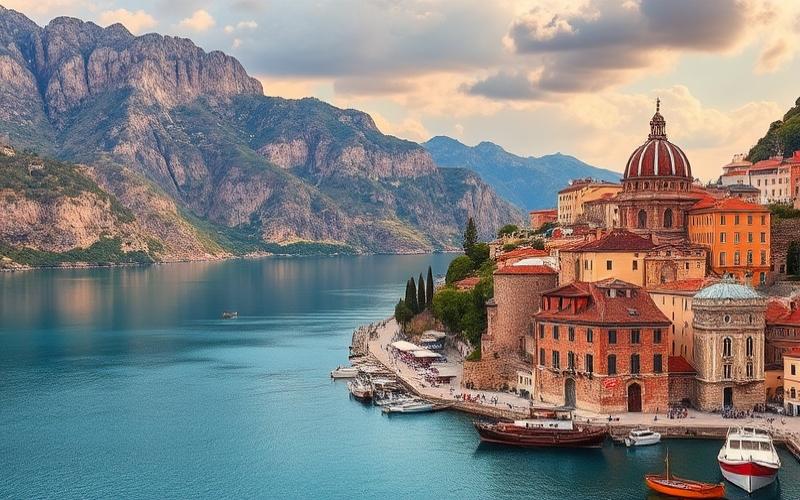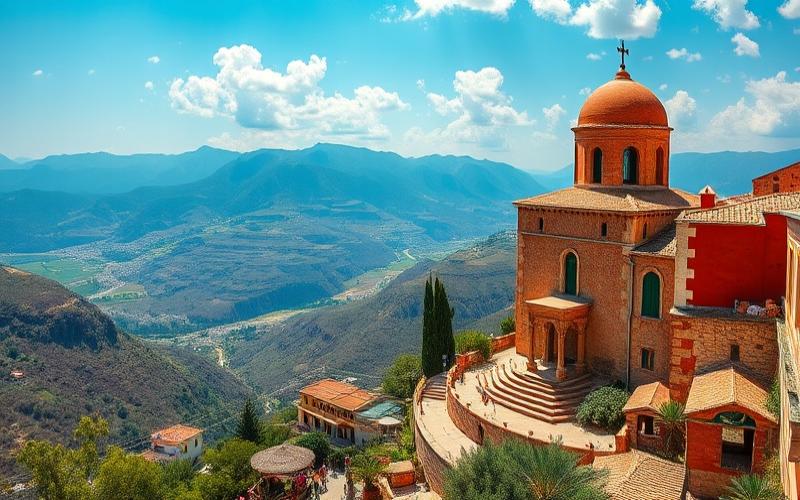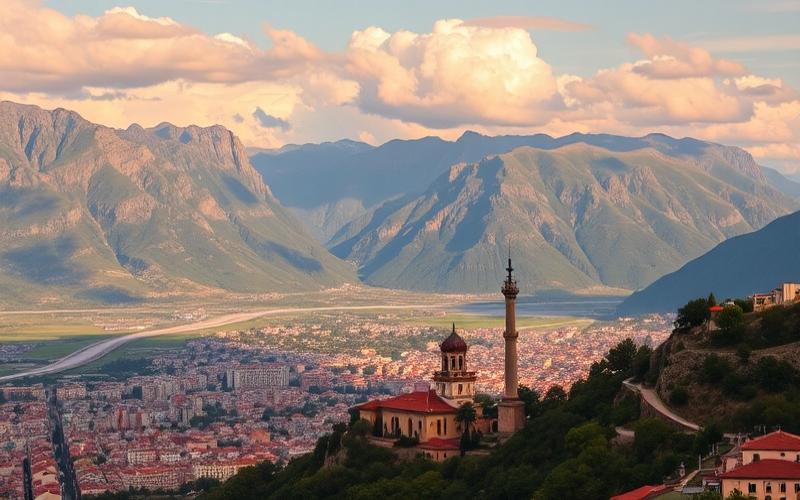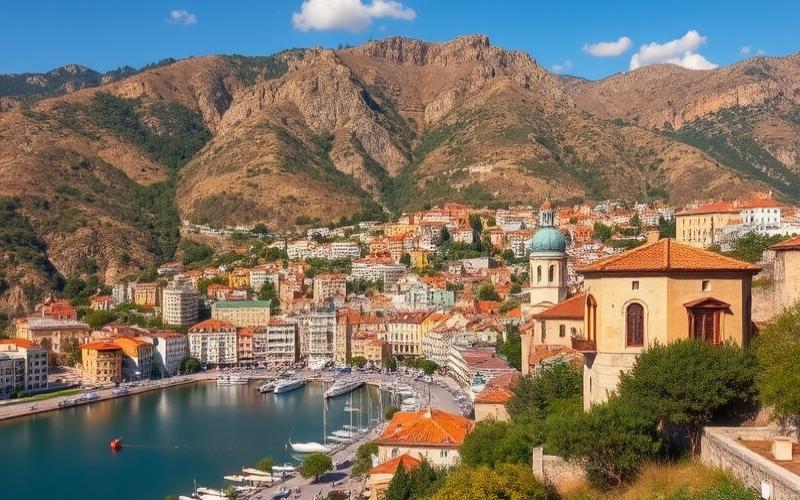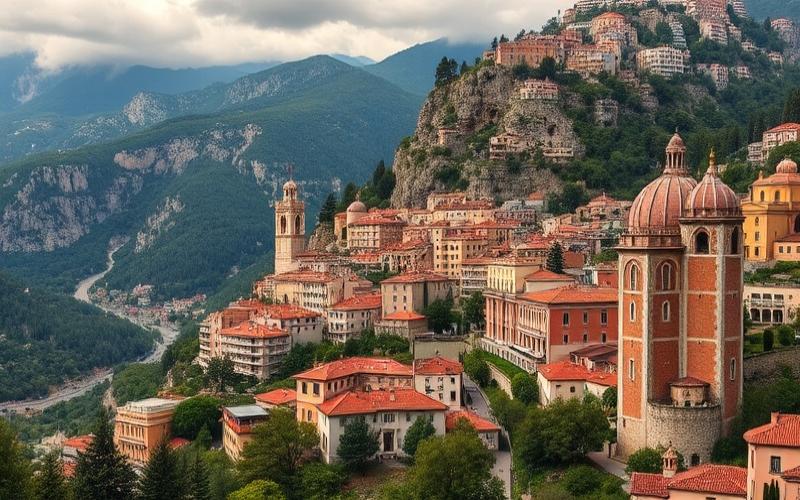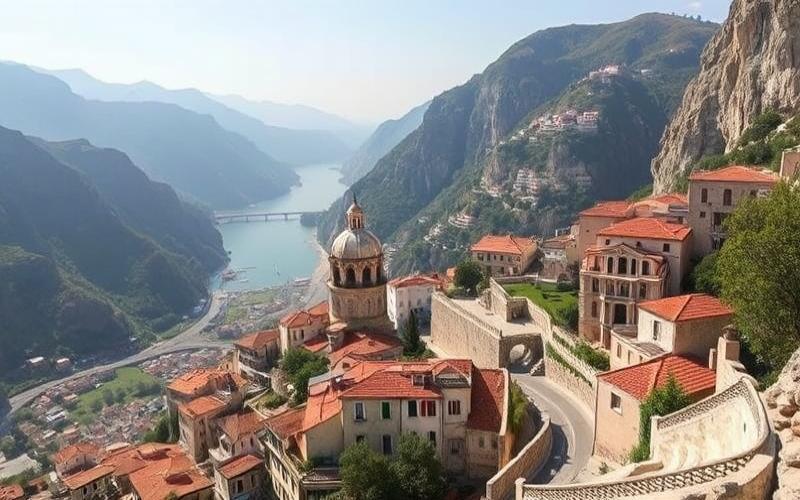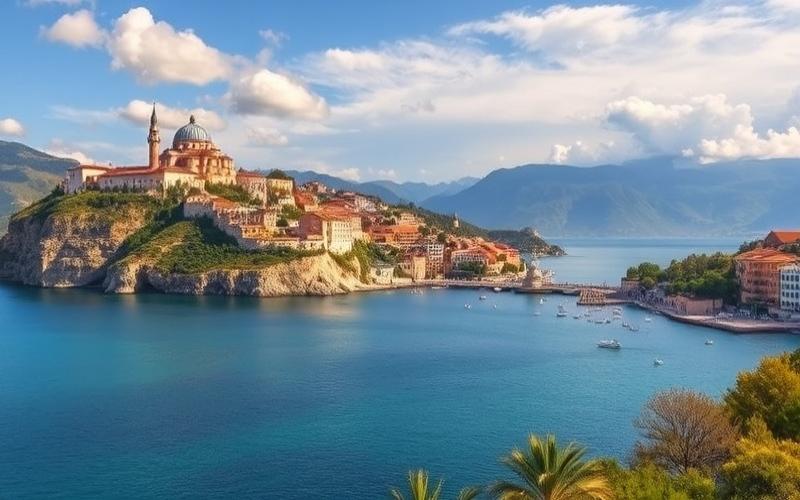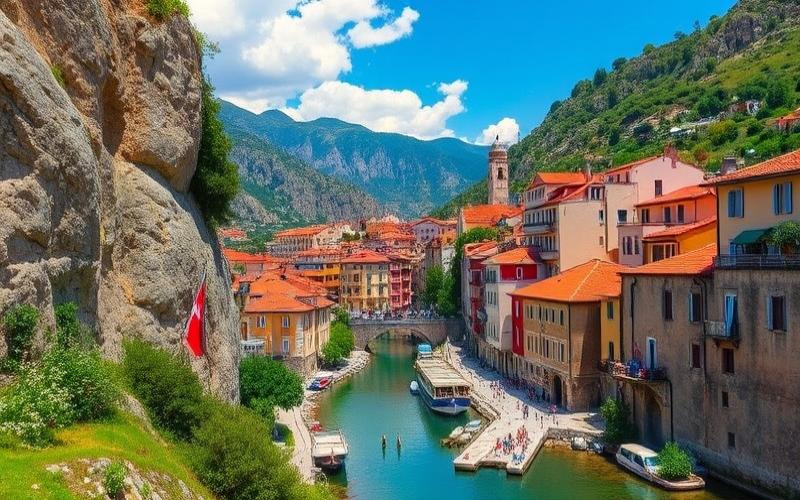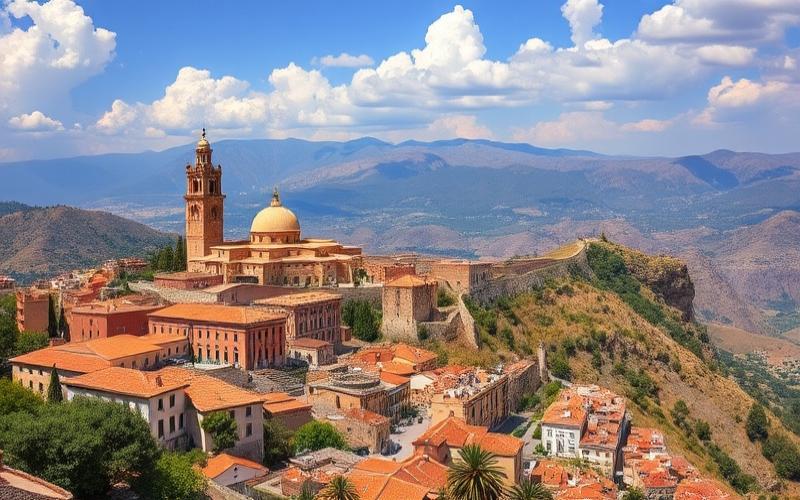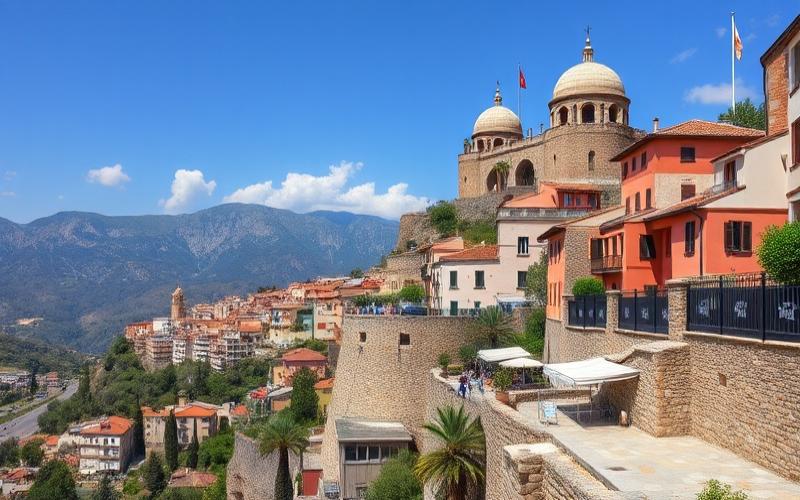
 Published on and written by Cyril Jarnias
Published on and written by Cyril Jarnias
Albania, a Balkan country with rich cultural and religious heritage, offers a fascinating landscape for expatriates eager to discover a new culture. With its complex history and religious diversity, Albania presents a unique context where religious practices play an important role in daily life, while operating within a secular framework. For expatriates settling in this country, understanding these dynamics is essential for successful and respectful integration.
The Albanian Religious Landscape: A Unique Mosaic
Albania stands out for its remarkable religious diversity, the result of a rich and eventful history. Unlike other Balkan countries where one religion often predominates, Albania hosts a peaceful coexistence of several faiths.
Religious distribution in Albania is approximately as follows:
- Muslims: approximately 60% of the population
- Orthodox Christians: approximately 20%
- Roman Catholics: approximately 10%
- Other faiths or non-believers: approximately 10%
This diversity is explained by the country’s complex history, marked by Ottoman, Byzantine, and Western influences. Islam spread widely during the Ottoman period, while Christianity, in its Orthodox and Catholic forms, maintained a significant presence, particularly in certain regions of the country.
The communist legacy and its impact on religion profoundly marked Albania. Under Enver Hoxha’s regime, Albania was officially declared atheist in 1967, prohibiting all religious practice. This period left marks on Albanian society, contributing to a more secular approach to religion after the fall of communism.
Today, Albania presents itself as a model of religious coexistence in the Balkans. Different communities live in harmony, and interfaith marriages or shared celebrations between different religions are not uncommon.
Good to know:
Albania is often cited as an example of religious tolerance in the Balkans, with peaceful coexistence between Muslims, Orthodox Christians, and Catholics.
The Impact of Religious Practices on Daily Life
Although Albania is officially a secular state, religious practices subtly permeate daily life, influencing social interactions, traditions, and even certain aspects of professional life.
In the social sphere, religion plays an important role during family events such as weddings, births, and funerals. These occasions are often marked by religious rituals, even in less practicing families. For expatriates, it’s important to understand and respect these traditions, which may vary depending on the family’s faith.
Religious holidays also mark the Albanian calendar. Although not all are official holidays, they are widely celebrated and can affect work schedules and service availability. For example:
- Eid al-Fitr and Eid al-Adha are celebrated by the Muslim community
- Christmas and Easter are important for both Orthodox and Catholic Christians
- Nevruz, although of Persian origin, is celebrated by many Albanians of all faiths
In the professional world, the influence of religion is more subtle but nevertheless present. Expatriates working in Albania may notice that some colleagues observe religious practices, such as fasting during Ramadan for Muslims or Lent for Christians. It’s important to show understanding and flexibility during these periods.
Albanian architecture and urban planning also reflect this religious diversity. In cities, it’s not uncommon to see a mosque, an Orthodox church, and a Catholic church near each other. These places of worship are often important landmarks in community life, even for those who are not practicing.
Good to know:
Despite the importance of religious traditions, Albanian society is generally open and tolerant. Expatriates should not feel obligated to participate in religious practices if they don’t wish to.
Main Religious Holidays and Their Celebration in Albania
For expatriates in Albania, understanding the religious holiday calendar is essential for integrating into local life and anticipating changes in society’s rhythm. Here’s an overview of the main religious celebrations in Albania and their impact on daily life:
Muslim holidays:
- Ramadan: Although Albania is a secular state, the month of Ramadan is observed by a significant portion of the Muslim population. During this period, changes in work schedules and increased evening social activities may be noted.
- Eid al-Fitr: This holiday marks the end of Ramadan and is celebrated with family gatherings and festive meals. Many businesses may be closed or have reduced hours.
- Eid al-Adha: This “Feast of Sacrifice” is an important occasion for sharing and solidarity. Families gather and often share meat with their neighbors and those in need.
Christian holidays:
- Christmas: Celebrated on December 25 by Catholics and January 7 by Orthodox Christians, Christmas is an important festive period in Albania. Cities are decorated, and many cultural events are organized.
- Easter: This holiday is celebrated fervently by Christian communities. Traditions include coloring eggs and elaborate family meals.
- Assumption Day: Celebrated on August 15, it’s an important holiday for Catholics and Orthodox Christians, often marked by pilgrimages and community celebrations.
Interfaith holidays:
- Nevruz: Although of Persian origin, this spring festival is celebrated by many Albanians of all faiths. It marks renewal and is often an occasion for picnics and outdoor gatherings.
For expatriates, it’s important to note that these holidays can affect work schedules, public service availability, and the general atmosphere in cities. It’s recommended to inquire in advance about the exact dates of these celebrations, as they can vary from year to year, particularly for Muslim holidays that follow the lunar calendar.
Participation and respect: Although active participation in these holidays is not mandatory for expatriates, showing respect and interest for these traditions is appreciated. Participating in certain celebrations when invited can be an excellent way to integrate and discover local culture.
Good to know:
Religious holidays in Albania are often occasions for intercommunity gatherings, reflecting the country’s spirit of tolerance and peaceful coexistence.
Behavioral Codes and Necessary Adaptations
For expatriates in Albania, understanding and respecting behavioral codes related to religious practices is essential for harmonious integration. Although Albania is a relatively liberal country regarding religion, certain considerations remain important:
Respect for places of worship: When visiting mosques, churches, or other sacred places, it’s important to dress appropriately. For women, this generally means covering shoulders and knees, and sometimes wearing a headscarf in mosques. For men, avoiding shorts and tank tops is recommended.
Sensitivity during fasting periods: During Ramadan, it’s courteous to avoid eating, drinking, or smoking in public during the day, out of respect for those who are fasting. However, many restaurants and cafes remain open, especially in tourist areas.
Participation in celebrations: If you’re invited to participate in religious holidays, showing interest and respect for local traditions is appreciated. Don’t hesitate to ask questions about customs; most Albanians will be happy to share their knowledge.
Intercultural communication: In conversations, avoid criticism or negative comparisons between religions. Albania is proud of its religious diversity and tolerance.
Professional adaptations: In the professional environment, be aware that some colleagues may have specific religious practices. For example, some may need breaks for prayer or may fast during Ramadan. Flexibility and understanding are appreciated.
Weddings and funerals: These events are often imbued with religious traditions. If you’re invited, inquire about appropriate customs, such as what to wear or gestures to adopt.
Food and drinks: Although Albania is generally liberal regarding food, some people may have dietary restrictions for religious reasons. During shared meals or invitations, it’s courteous to inquire about your hosts’ or guests’ dietary preferences.
Good to know:
Albanian society greatly values hospitality. Showing openness and respect toward local religious practices is often rewarded with a warm welcome and enriching cultural exchanges.
Religious Freedom and Resources for Expatriates
Albania stands out for its strong commitment to religious freedom, a principle anchored in its constitution and respected in practice. For expatriates, this means an open and tolerant environment where practicing one’s own religion is generally possible without hindrance.
Legal framework of religious freedom:
- The Albanian Constitution guarantees freedom of conscience and religion
- The state is officially secular and has no official religion
- All religious communities are equal before the law
- Discrimination based on religion is prohibited
This liberal approach translates into great openness toward different religious practices, including those of expatriates.
Resources for expatriates:
For expatriates wishing to practice their religion in Albania, several options are available:
- Places of worship: Major cities like Tirana, Durrës, and Shkodër have places of worship for various faiths, including international churches for expatriates
- Religious communities: There are religious groups and associations for expatriates, often linked to embassies or international cultural centers
- Services in foreign languages: Some places of worship offer services in English or other languages for the international community
- Online resources: Many religious communities maintain websites or social media groups to inform and connect their members
Practical advice:
- Inquire with your embassy or expatriate associations to find places of worship corresponding to your faith
- Large companies and international organizations can often provide information about available religious resources for expatriates
- Don’t hesitate to participate in interfaith events, which are frequent in Albania and offer an excellent opportunity to meet other expatriates and locals
Potential challenges:
Although religious freedom is widely respected, expatriates may sometimes encounter challenges:
- Limited availability of certain specific food products (like kosher or halal food) in small towns
- Possible closure of some services during major local religious holidays
- Need to adapt to local rhythms, particularly during Ramadan or Christian holiday periods
Good to know:
Albania is internationally recognized for its model of harmonious religious coexistence. This openness naturally extends to expatriates, creating a welcoming environment for the practice of various religions.
Conclusion: Albania, a Model of Religious Diversity for Expatriates
Albania offers expatriates a unique environment where religious diversity is not only tolerated but celebrated. This Balkan country, with its complex history and mosaic of traditions, presents a fascinating model of peaceful coexistence between different faiths.
For expatriates, understanding and adapting to local religious practices in Albania is an enriching opportunity to immerse themselves in a culture where religion plays a subtle but significant role in daily life. Whether participating in local holidays, respecting customs during fasting periods, or simply appreciating the architectural diversity of places of worship, expatriates will find many ways to integrate and enrich their cultural experience.
The religious freedom guaranteed by the Albanian constitution, combined with the generally open and tolerant attitude of the population, creates a favorable environment for expatriates of all faiths. This openness allows not only for practicing one’s own religion without hindrance but also for exploring and understanding local traditions.
Ultimately, the religious experience in Albania for an expatriate is a lesson in tolerance, mutual respect, and harmonious coexistence. It’s a unique opportunity to live in a country where religious diversity is considered a strength rather than a source of division.
For expatriates settling in Albania, adapting to local religious practices is not just a matter of respect, but also an open door to a deeper understanding of Albanian culture and history. It’s an invitation to participate in a societal model where different beliefs coexist peacefully, offering a valuable perspective on the possibility of interfaith harmony in an increasingly globalized world.
Good to know:
The experience of religious diversity in Albania can be a source of inspiration and learning for expatriates, offering valuable lessons about tolerance and mutual respect applicable in many international contexts.
Disclaimer: The information provided on this website is for informational purposes only and does not constitute financial, legal, or professional advice. We encourage you to consult qualified experts before making any investment, real estate, or expatriation decisions. Although we strive to maintain up-to-date and accurate information, we do not guarantee the completeness, accuracy, or timeliness of the proposed content. As investment and expatriation involve risks, we disclaim any liability for potential losses or damages arising from the use of this site. Your use of this site confirms your acceptance of these terms and your understanding of the associated risks.

